AIS Education Scholarship
Supporting Australian High Performance athletes in their pursuit of study and educational experiences
Testimonials
Mitchell Nicolson
Hockey. Queensland University of Technology. Doctor of Philosophy (Ph.D).
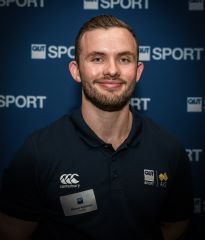
My decision to pursue a Doctor of Philosophy (PhD) stems from both personal and professional motivations. As an elite athlete myself, I have always been fascinated by the intersection of sports performance and physiological mechanisms. My experiences competing at the highest levels have instilled in me a desire to contribute to the advancement of sports science, particularly within emerging domains such as esports.
By receiving financial assistance from the Australian Institute of Sport, I would attain a newfound sense of security and relief, knowing that I can effectively support my training commitments and academic pursuits without the looming financial strain.
Campbell Watts
Rowing. Deakin University. Bachelor of Commerce/ Bachelor of Property and Real Estate.
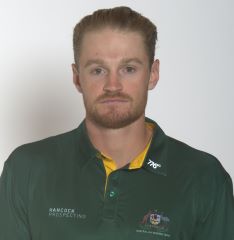
My degree is vital for setting up my life post-rowing. Studying makes that post-athletic transition so much more enjoyable because you’re not questioning what you’re going to do but working out how to do it.
This scholarship would allow me a massive amount of breathing room and would be super helpful in affording textbooks for my units and tutoring in areas I may be struggling with.
Grayson Bell
Swimming. Griffith University. Bachelor of Software Engineering (Honours).
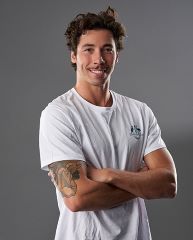
I am deeply grateful to the AIS for awarding me the Athlete Education Scholarship. This financial support has been instrumental in allowing me to pursue my full-time studies in software engineering, a field I am incredibly passionate about, while continuing to train and compete as an elite athlete. Balancing academics with the demands of training and competition is challenging, but the AIS scholarship has eased that burden significantly. It has given me the freedom to focus on my athletic goals while ensuring I can continue to achieve my academic pursuits.
This scholarship is not just an investment in my education and athletic career; it's an investment in my goals. With the support of the AIS, I am confident that I will one day achieve my ultimate goal of developing innovative software that will enable and enhance interplanetary missions, pushing the boundaries of human space exploration and discovery.
Matthew Byrnes
Water Polo. University of New South Wales. Bachelor of Commerce.
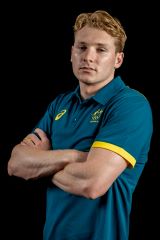
I am currently enrolled in a Bachelor of Commerce. After sustaining a significant back injury playing water polo for the Australian Junior Team in 2019 I decided to pursue a business-based career as a physically demanding job was not compatible with high levels of training and injury management.
Now, while competing in the Spanish League and playing for the Australian Men's Water Polo team, I spend a lot of time overseas or travelling. Receiving financial assistance for my continuing education would be a huge benefit as it is currently my biggest expense.
Caleb Crowden
Table Tennis. Flinders University. Bachelor of Psychology (Honours).
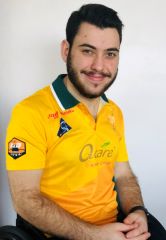
I am enrolled in a Bachelor of Psychology Honours which teaches social, cognitive, developmental, and neurological psychology and discusses how to develop and apply this knowledge to help improve people's mental health and wellbeing. I chose this course after receiving help from a clinical psychologist, which showed me not only the importance of mental health but also that I wanted to help people in the same way the psychologist helped me. Due to my disability, I am unable to work consistently. Financial support would allow me to pay the fees for this year's course, reducing some of my overall debt.
Britney Desilva
Hockey. Notre Dame University. Bachelor of Health and Physical Education (Secondary).
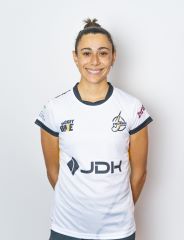
I am enrolled in a Bachelor of Health and Physical Education (Secondary). I chose to pursue teaching because I wanted to follow in the footsteps of some of the amazing teachers I was lucky enough to have during my high school years. I would love to be the inspiration and positive influence for kids that my teachers were able to provide me with.
I play hockey at a club and state level and due to training and competition commitments, I cannot work as much as the average university student. This grant would allow me to pull back from work and spend more time on finishing my studies while I continue to strive for national selection.
Emily Whitehead
Gymnastics. Deakin University. Bachelor of Exercise and Sports Science.
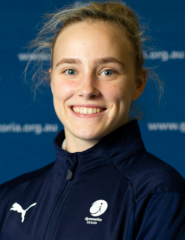
As an elite athlete, I have always been fascinated by the science behind athletic performance and human movement. This program offers me the opportunity to deepen my knowledge and expertise in these areas, allowing me to pursue a career where I can apply my passion for sports and exercise to help others optimise their health and performance.
Receiving financial support would enable me to focus on excelling in coursework and athletic endeavours without the distraction of financial worries.
Hudson Skinner
Diving. Monash University. Bachelor of Laws (honours) and a Bachelor of Commerce.
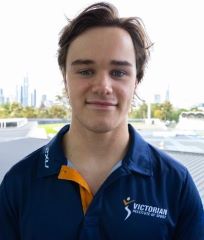
I am enrolled in a Bachelor of Laws (honours) and a Bachelor of Commerce and hope to enter the commercial world, perhaps in management consulting.
Having to travel both interstate and internationally this year for my sport, this financial support would reduce the pressure of university fees, thus allowing me to train and perform to a higher degree. Ultimately, I hope that in pursuing the path I am on and being engaged in both sport and study, I can positively contribute to the multiple communities which I am so fortunate to be a part of.
Kaitlyn Ea
Badminton. The University of Melbourne. Bachelor of Science degree.
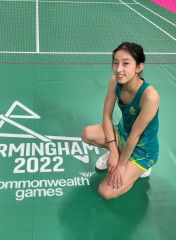
A Bachelor of Science degree will aid me in pursuing a career in healthcare, combining my passion for science with my desire to make a tangible difference in people's lives.
Given the significant investment already made in Badminton for training and competition, securing financial assistance for my educational needs would be incredibly beneficial. My education not only equips me to excel in my current athletic endeavours but also ensures a smooth transition into a rewarding career once my badminton journey concludes.
Chelsea Holmes
Hockey. Australian Catholic University. Bachelor of Occupational Therapy.
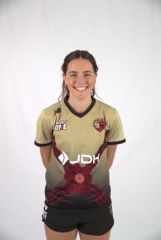
As an aspiring occupational therapist and high-performance athlete, I embody the values of the Win Well strategy by prioritising not only athletic excellence but also personal growth, resilience, and integrity. This dual career ensures that I am well-equipped for success both on and off the field.
I selected this course primarily because of my passion for helping others and making positive impacts on people's lives. Receiving financial support for my education would be instrumental in supporting my full-time training and the challenges posed by extended placement periods during my studies.
Aleisha Power
Hockey. Edith Cowan University. Master of Counselling.
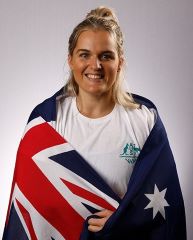
Studying a Master of Counselling has been the best decision I have ever made. I wanted to have a career where I could make a difference in someone's life and work in an area I cared deeply about, and this course facilitates that.
This funding will significantly lessen my financial burden as I prepare for the Paris 2024 Olympic Games. As a result, I will be able to devote more time to my studies and recover both mentally and physically from my hockey training.
Brodie Crawford
Paddle. Charles Sturt University. Bachelor of Physiotherapy.
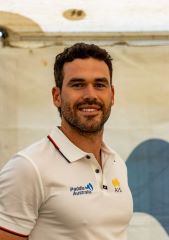
I’m a canoe slalom athlete and currently studying for a Bachelor of Physiotherapy. I love the idea of the profession; it forces you to always be problem-solving and using your mind while keeping active and helping people daily.
Training, travel, and, of course, university come with a big financial burden. Receiving the AIS Education Scholarship would be incredible. It would allow me to reduce work hours to focus on my training and recovery and dedicate more time to studying.
Dominic Curtin
Paddle. The University of New South Wales. Bachelor of Engineering (honours) (Renewable Energy).
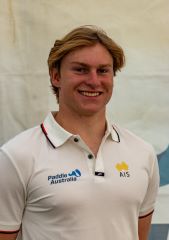
In my sport I am exposed to the power of energy in the whitewater of the canoe slalom course, which has me thinking about how that energy is dissipated and how might it be captured. All these experiences have shaped me to believe a renewable energy future is possible and triggered my curiosity and desire to play a role in solving the challenges of renewable energy.
Financial support to study renewable energy engineering will enable me to develop a diverse range of skills across several engineering domains and ensure I can give sufficient focus to both my studies and training to become the best person I can be.
Ben Canham
Rowing. RMIT. Bachelor of Industrial Design (Honours).
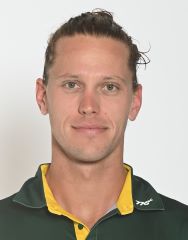
Being part of the Australian team necessitates international travel for a minimum of three months annually, driven by competition and training obligations. This leaves no opportunity to maintain employment and generate income to support my studies. Receiving financial assistance through the scholarship would afford me stability, enabling me to prioritise sports while preparing for a successful transition post-athletic career.
Caitlin Cronin
Rowing. The University of New South Wales. Masters of Public Health.
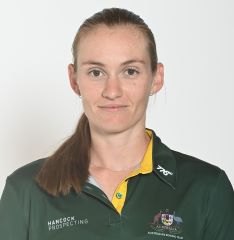
I am an Olympic Rower based in Penrith at the Women’s National Training Centre, where I train full-time. Being immersed in this environment can make it very difficult to switch off from training and competition. Studying facilitates this switch off from rowing for me. By studying something I am passionate about I can immerse myself in my work and completely switch off. Having another avenue to put energy into outside of rowing improves my mental health and I know I’m rowing my best when I am happiest.
Lucy Coleman
Rowing. The University of New South Wales. Bachelor of Engineering in (Aerospace).
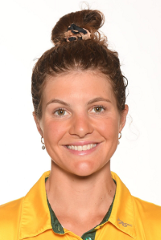
Studying a Bachelor of Engineering in Aerospace was a decision based on my passion for challenges, problem-solving, and the aerospace industry's current potential. While the work is extremely challenging and, at times, a lot to balance with elite sport, this course really provides a platform to turn my passion into purpose.
I would be eternally grateful to receive financial support for my educational needs. It would ensure access to essential resources such as textbooks and materials necessary for coursework, facilitating better academic success and alleviating some financial stress.
Neasa Flynn
Hockey. Curtin University. Bachelor of Environmental Science.
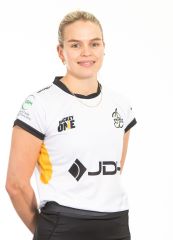
As I prepare for the 2028 Olympics, my environmental science degree equips me with transferable skills and knowledge that transcend the realm of sports. I chose this course because I am passionate about environmental conservation and want to make a positive impact on the world.
Balancing my academics, hockey pursuits, and work has proven challenging. Without financial support, I risk being overwhelmed and unable to fully focus on my studies or hockey commitments as I aspire to play on an international stage.
Samantha Gaul
Snow sport. Australian National University. Bachelor of Commerce.
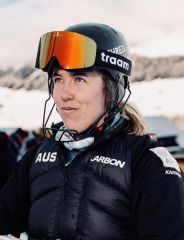
I am a member of the Australian National Alpine Ski Team and ACT Academy of Sport. In between full-time ski racing I’m studying a Bachelor of Commerce, which has given me a better understanding of how the business world works and sets me up for a professional career post-ski racing. It’s tough managing both, but I’m grateful for this opportunity to study because it’s really rewarding knowing that this degree will help me down the line.
Aidan Murphy
Athletics. The University of Adelaide. Bachelor of Economics.
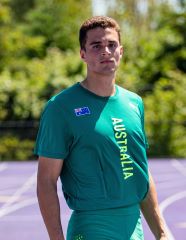
As a world-class 200m sprinter representing Australia on the global stage, time management and mental agility are paramount. Engaging in coursework requiring analytical thinking and problem-solving sharpens my cognitive abilities, which are crucial for making split-second decisions during races and maintaining focus amidst intense competition.
As I pursue my Bachelor of Economics and plan to pursue subsequent studies in an MBA program, financial support will become crucial to ensuring the realisation of my educational goals and a successful post-athlete career.
Damien Mortaud
Rugby. TAFE QLD. Diploma in Access Consulting and a Diploma in Residential Drafting.
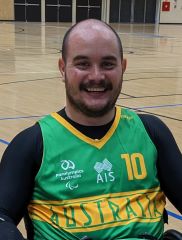
I am currently enrolled in a Certificate IV in Residential Drafting, and I hope to continue to complete a Diploma in Access Consulting and a Diploma in Residential Drafting. I want to be involved in creating a pathway for current and future Paralympians and help create a more accessible future for everyone living with a disability.
Currently, I am not able to work due to the high volume of study and training I do for wheelchair rugby. Support from the AIS Elite Athlete Education Scholarship would be greatly appreciated. It would help me finish my course and make a difference in making Australia more accessible.
Sophie Malcolm
Rowing. Griffith University. Bachelor of Physiotherapy.
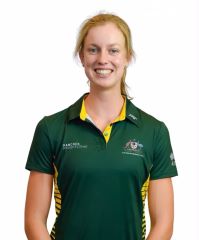
Throughout my participation in various sports, I've seen firsthand the importance of rehab, injury management, and injury prevention. I've seen the significant role that physios play in the recovery process, which interested me to pursue this as a career.
I am currently balancing full-time studies with a rigorous training schedule as a member of the Australian Rowing Team. Financial support would allow me to have more time for my studies and training, significantly reducing the added stress of working multiple shifts to cover university, training, and travel expenses.
Jean Mitchell
Rowing. Deakin University. Bachelor of Design (Visual Communication).
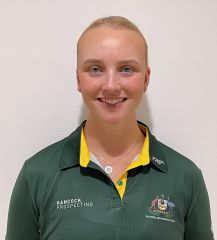
Juggling high performance sport and cancer treatments taught me how important it is to set goals that I am passionate about. I am now studying a Bachelor of Design (Visual Communication) and feel excited about my career ahead. My studies in design are an incredibly important part of my holistic development. Rowing can be very all-encompassing, yet my studies ensure that I stay balanced and true to myself.
The opportunity to receive financial assistance would help me tremendously. It would relieve the pressure of building university fees while I keep a focus on my goal of representing Australia at the Paris Olympic Games.
Ella Ramsay
Swimming. Central Queensland University. Bachelor of Psychological Science.
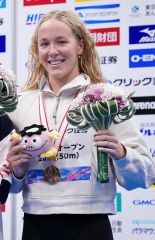
Even while my sporting endeavours are admirable and could lead to success in the field, a strong educational background might lead to a greater variety of employment choices outside of sports. With a degree in the Bachelor of Psychological Science, I’m giving myself a great set of skills and information that will help me grow personally and professionally. Funding from this scholarship will reduce my financial burden and support my academic pursuits alongside a full-time athletic schedule.
Alex Saffy
Swimming. University of Canberra. Bachelor of Commerce (Finance and Banking).
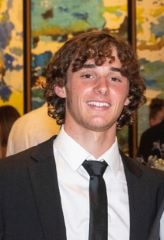
While I am focused on getting my best results in the pool at international competitions, I recognise the importance of also preparing for my career. Studying Commerce will help me develop an understanding of business principles that can be applied to managing my personal brand, finances, sporting ventures, and a future beyond swimming. Access to financial support will help me prioritise training commitments and allow me to focus on completing all course tasks and expectations.
Ben Hinks
Sailing. Flinders University. Bachelor of Mechanical Engineering (Maritime) (Honours).
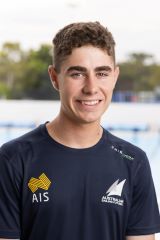
Financial support to cover a portion of my University Fees would ease a huge amount of pressure, which would allow me to focus more on both my study and sport. To train and compete in sport at an elite level I have had to make significant sacrifices, one of these being less paid work which would bring an income in to cover the cost of these fees. I am still working hard (currently night fill, and coaching) to create this balance between enough work to cover my expenses whilst enough time to train to be working towards my goal of medalling at the Olympics.
I think it is important for other athletes especially youth to be inspired to undertake study in addition to their sport. Being a role model in my sport, I believe that by studying myself it encourages and shows to others that it is something that can be balanced at the elite level. This highlights the importance of ensuring balance of my wellbeing and sport. Without a positive wellbeing it will be difficult to succeed in my sport.
Jackson Harvey
Freestyle mogul skier. Griffith University. Bachelor of environmental science and business.
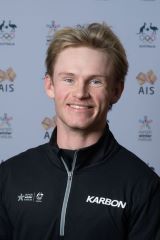
I think all mature athletes acknowledge that participation in sport at the highest level is not forever, no matter how much we’d like to think so. One day our bodies will slow down, our capacity to win more medals and score more goals will decrease, and we might even find ourselves drawn to passions elsewhere or take on new responsibilities such as raising a family. Personally, my study helps me nurture this perspective and appreciate the joys of athletics, while also providing me a sense of long-term security.
Jack Crome
Triathlon. Queensland University of Technology. Bachelor of Business/Bachelor of Information Technology.
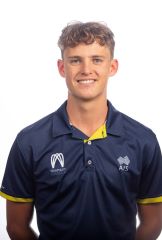
These financial pressures are a real concern as a young athlete in a world where cost of living seems to always be increasing and at front of mind. I often find myself thinking about whether I can or should continue to try and balance both study and sport at the same time. This could ultimately impact my performance in both, which is definitely not what I want as a person or an elite level athlete.
I believe that if I can combine my university study and goals to broaden my skills sets and experience with my sporting aspiration to represent Australia at both the Los Angles and ultimately at my home Brisbane Olympics, I will be able to demonstrate the core values of the “Win Well” vision. I believe my academic choices are well aligned to my personal and sporting goals. I find that I can often relate the information that I learn to real life examples and experiences that I have in my sport.
Putu Anastasia Kusmawan
Artistic Swimming. The University of Melbourne. Bachelor of Science.
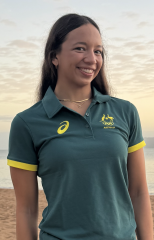
Despite my Olympic aspirations, my education has always been my long term priority. It is absolutely crucial to have a “second plan” in the works, for any athlete’s post-sporting career. Undertaking in further study and building towards a professional career in the workforce truly assists in having a positive outlook on my future, as sustainable and long lasting.
The Win Well pledge highlights the importance of both sporting ambition and wellbeing as equally important, not placing one above the other. Studying provides an unspoken sense of security, which is crucial towards a healthy mind.
Michael Dobroskok
Gymnastics. Bond University. Bachelor of Psychological Science .
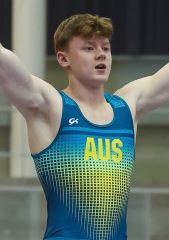
My academic journey in psychology aligns with my long-term goal of contributing to the field of sports psychology. Combining my passion for athletics with my expertise in psychology, I aspire to work with athletes and sports teams to enhance their mental resilience, performance optimization, and overall wellbeing. Whether as a sports psychologist, coach, or consultant, my education in psychological science prepares me to make a meaningful impact in the realm of sports and beyond.
Kendra Fitzpatrick
Hockey. Griffith University. Bachelor of Primary Education.
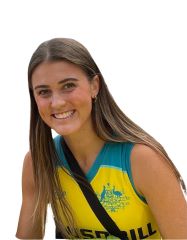
I chose this course because of my passion for teaching and my desire to positively influence the next generation. While I am fully committed to pursuing excellence in hockey, I recognise the importance of planning for the future beyond my athletic career. A degree in primary education offers a versatile pathway, opening doors to various career opportunities in teaching, coaching, sports administration, and youth development. By investing in my education now, I am laying the groundwork for a successful transition into a fulfilling career path that leverages my passion for sports and education to effect positive change in the lives of others.
Rebecca Pretorius
Rowing. The University of Western Australia. Doctor of Medicine.
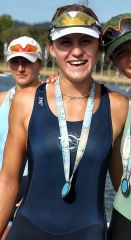
I love what I am studying, I find it complements my life as a high-performance athlete as it means I have dual focuses so when I am stressed about rowing or working through an injury I can switch off from rowing and focus my energy on something else productive. My studies and rowing have taught me many different life skills such as resilience, confidence, organisation, time management, empathy, and toughness. These skills and values will set me in good stead in my post-athlete career.
Mitchell Tamblin
Paddle. Curtin University. Bachelor of Commerce.
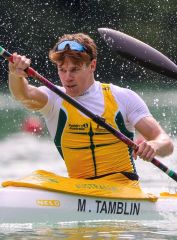
Minimising the financial burden would enable me to fully dedicate myself to academic success and athletic excellence. This approach ensures a fulfilling university experience while also safeguarding against the accumulation of significant debt. Additionally, receiving this scholarship would contribute positively to my mental, emotional, and physical well- being, allowing me to thrive in all aspects of life.
For me, success is not just about winning; it’s about reaching one’s potential as an individual and positively impacting others along the way. Through my academic endeavours and sporting achievements, I aspire to embody the principles of the Win Well strategy.
Sophie Fadaely
Squash. The University of Queensland. Bachelor of Engineering (Honours).
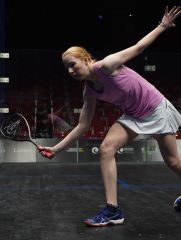
As someone who thrives on balance, I've found that having multiple outlets in my life, including academics, has been crucial. While squash is undoubtedly my primary focus, I've come to realise the importance of having another passion to turn to when results on the court aren't going as planned. This balance not only keeps me grounded but also ensures that I maintain a positive mindset, even after facing setbacks in squash.
My academic pursuits not only complement my current activities as an athlete but also serve as a foundation for my future beyond the realm of competitive sports, ensuring I am well-prepared for whatever comes next in my journey.
Greta Small
Snow. Griffith University. Bachelor of Communication.
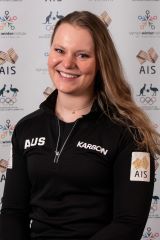
I am studying part-time to be able to combine with a full-time training load and traveling eight months of the year to compete and train on-snow to the Milano Cortina 2026 Olympic Games. Receiving financial support of my education in 2024 would greatly affect me by helping reduce stress load due to financial pressures and have a huge positive impact mentally as I pursue my education and sporting dreams.
Matilda Moore
Water Polo. Queensland University of Technology. Master of Optometry.
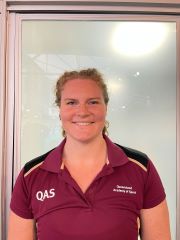
This year I will be fine-tuning my clinical skills as well as researching and performing experimentation for my master's thesis. This first semester is particularly challenging for me as I am in season for the Australian Water Polo League and will have to balance travelling and playing games on the weekends and university during the week.
Studying vision science and optometry for the past three years has helped me be a more well-rounded person and athlete. Throughout my bachelor’s degree I had to study the anatomy and physiology of the human body which has allowed me to connect with my own body, how I approach training, and how I recover from injuries.
I believe coming out on the other side of my Master’s, I will be a strong, independent, and skilled optometrist, water polo player, and person.
Tilly Hughes
Water Polo. Australian Catholic University. Bachelor of Nursing.
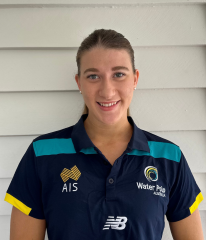
Just as athletes are constantly striving for excellence in sport, as a nursing student, I am committed to excelling through my continuous study and professional development to ensure I am able to give safe and effective care. Study enhances my skills, knowledge and abilities, mirroring the dedication required needed to strive for success in both areas.
Maddison Brooks
Hockey. Deakin University. Bachelor of Business majoring in Sports Management.
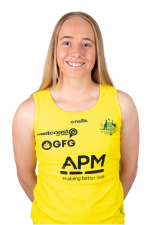
The significance of assistance from the AIS extends beyond monetary aid. It signifies a community understanding and endorsing my commitment to both sporting excellence and educational achievement. With the alleviation of financial pressures, I could allocate more time and energy to my training, ultimately enhancing my overall performance and progression. The backing of the AIS not only facilitates my immediate needs, but also contributes to the long-term success of my athletic and academic endeavours.
Lucy Austin
Netball. The University of South Australia. Masters in Teaching.
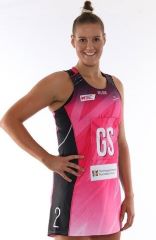
I have chosen to do this post-graduate degree to increase my employment prospects with a teaching qualification that specialises in secondary education. Successful completion of this program provides a recognised academic qualification, enabling graduates to apply for teacher registration in South Australia, interstate, and some overseas countries.
I really want to teach secondary students as I can really connect and build strong relationships with students this age, and I find it very special that one day I will be able to be the safe space/ person for children who may not have this in their life outside of school. I am excited to inspire the next generation to push themselves out of their comfort zones, to try new things and to guide them to be strong, intelligent, and good people.
Megan McCaffrey
Hockey. Notre Dame. Bachelor of Physiotherapy.
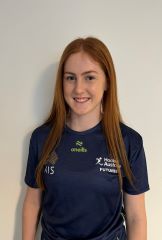
I am incredibly grateful to be awarded the AIS Education Scholarship, which helps me balance my sporting and academic commitments by alleviating the financial burden of university fees and study materials. This support allows me to pursue high-level competitive sport while preparing for my future career, which is especially rewarding since my chosen course is highly relevant to sporting performance.
This scholarship benefits me both as an athlete and in my post-athletic career. I have seen firsthand the value of physiotherapists who travel with sports teams and assist athletes in recovering from injuries, enabling them to compete again. I am truly honoured to be a recipient of the AIS Education Scholarship and look forward to continuing my pursuit of both academic and sporting excellence, as well as a future career in this field.
Tobiah Goffsassen
Rowing. The University of Queensland. Bachelor of Exercise and Sports Sciences (Honours).
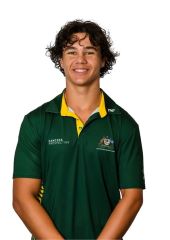
Aislin Jones
Shooting. Deakin University. Bachelor of Commerce.
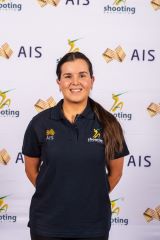
Balancing a dual career in elite sport and in the workplace, while also studying at Deakin is incredibly challenging. It increases the stress on me mentally and financially to achieve my goals. Scholarship funding from the AIS would be of immense assistance in reducing that stress and enhance my ability to achieve results in academia and sport. I will be able to achieve my career goal sooner with the AIS’s support than I would otherwise.
Studying for my career makes me excited for what I can achieve and where I can go in the future. Which contributes to my wellbeing which is the cornerstone of the Win Well commitment.
Elizabeth McMillen
Athletics. Griffith University. Bachelor of Political Science and International Relations/Criminology and Criminal Justice.
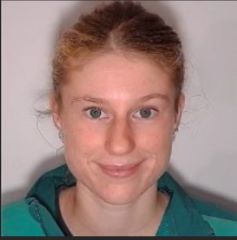
Due to my ongoing commitment to my athletic pursuits, a scholarship would not only provide the support I need to train and compete to my optimal ability, but it would also allow me to apply myself effectively to my academic studies.
To achieve excellence in my degree whilst managing a 20 hour training week as well as part time work and continued commitment to the community, a scholarship would ease the financial burden of being an aspiring Olympian and Criminologist. Working towards my post-athlete career while still being an athlete ensures I can lay the foundation for an easy transition out of the elite athlete routine.
Fedele de Campo
Snow. Australian National University. Bachelor of Science and Economics.
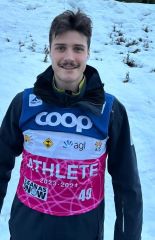
I believe that having a focus outside of sport improves the well-being of an individual. I believe that study complement my athletic pursuits by providing additional momentum in my daily life.
There have been times where my results having been disappointing, or through injury and sickness where studying has provided a means to feel like I am achieving something on certain days were otherwise I would start to feel a bit hopeless. If I manage the stress of exams and assignments then the net benefit of education improves my performance; there’s nothing better than nailing your sleep, training sessions, and productive study periods.
Sophie Casey
Netball. The University of Adelaide. Batchelor of Engineering (Honours) (Chemical).
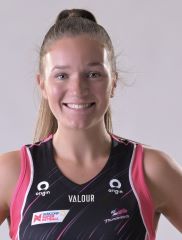
The degree I have chosen to study does not complement my current activities as a high performance athlete, however that is why I love it. There is very little correlation between chemical engineering and high performance, pushing me to use a completely different section of my brain. This forces me to have a mental break from netball as when I am at university or completing my studies at home my complete focus and attention are required to succeed.
As someone prone to overthinking upcoming games, and previous training drills, and finds it easy to focus on the “what ifs” of the future, being forced to switch my netball brain off has significantly aided my preparation for training and competition. My dual completion of sport and study allows me to keep all options open for my future.
Jaeda Ritchie
Hockey. Curtin University. Bachelor of Science (Exercise and Sport Science).
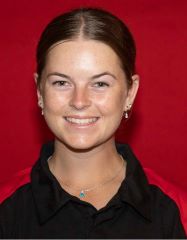
I think it’s important to showcase to others that it’s possible to train and compete as a high-performance athlete while also working on getting a qualification. It’s a fact that I couldn’t be a high-performance rower for my whole life so it’s of the utmost importance that I study at the same time and get a qualification that I can use for when my time in rowing is finished. If I can lead by example to those other athletes around me then I feel like I am being a positive influence and hopefully inspiring too. If I can do it – you can do it too.
Chad Willett
Rowing. Curtin University. Bachelor of science (Exercise and Sport Science).
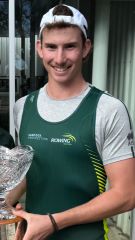
Success in my apprenticeship is equally important to success in my rowing aspirations. I know I can’t be a high performance rower my whole life, so it is of utmost importance that I study at the same time and get a qualification that I can use when rowing is finished.
Apprentice wages are minimal, so having financial support to go towards my education would be a great help and provide some financial relief. If I lead by example, I can show others that it is possible to train and compete whilst also getting a qualification.
Romy Cantwell
Rowing. The University of Melbourne. Doctor of Medicine.
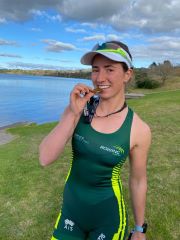
Starting medicine this year has made me so extremely excited for my post-athlete career and I find myself being continuously inspired to join the workforce in a line of work that is so rewarding. I ultimately would love to work in a rural area like Ballarat and to also be able to give back to my sport by coaching schools or clubs in that region.
When I am in the boat, it is just me. But when I am studying medicine, it is for a much larger picture, a hope that I can put these skills to use and better the lives of many people other than myself. This distinguishment has been so important for me and has developed me into a person able to see so many different perspectives on life.
Further information
If you have any questions regarding the Athlete Education Scholarship program, please email AthleteEducationScholarship@ausport.gov.au.